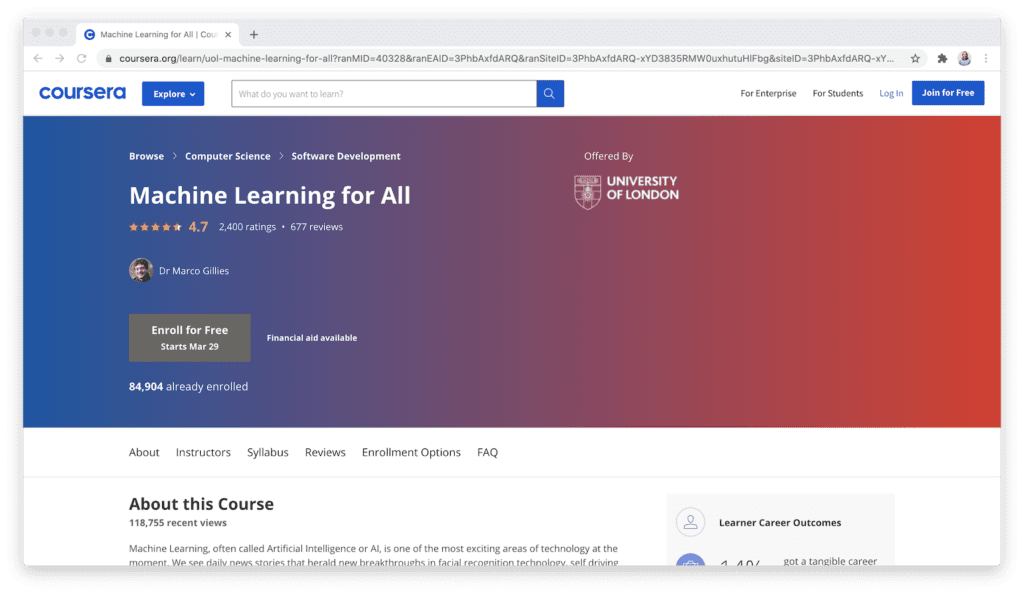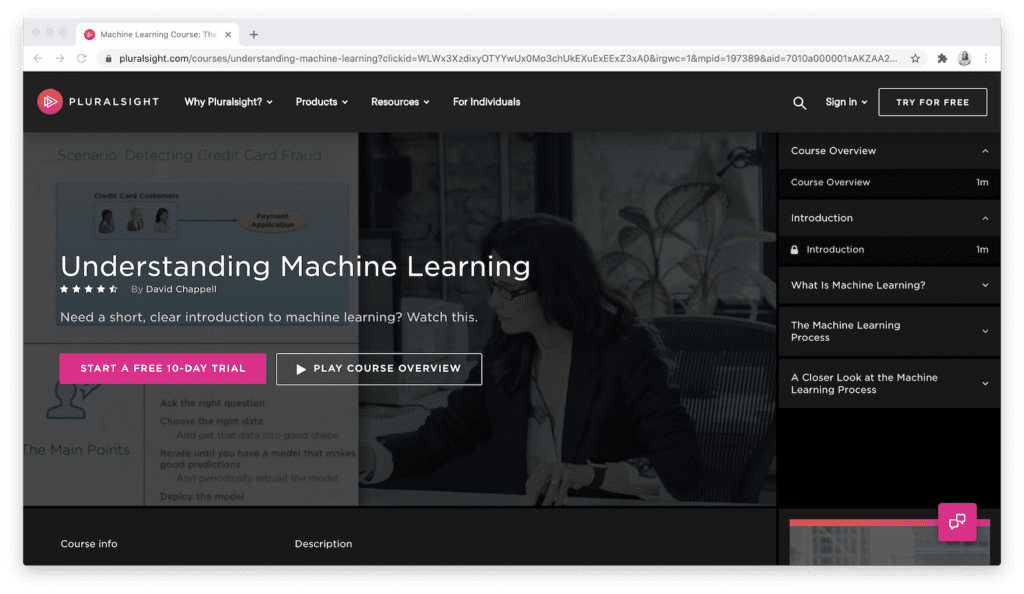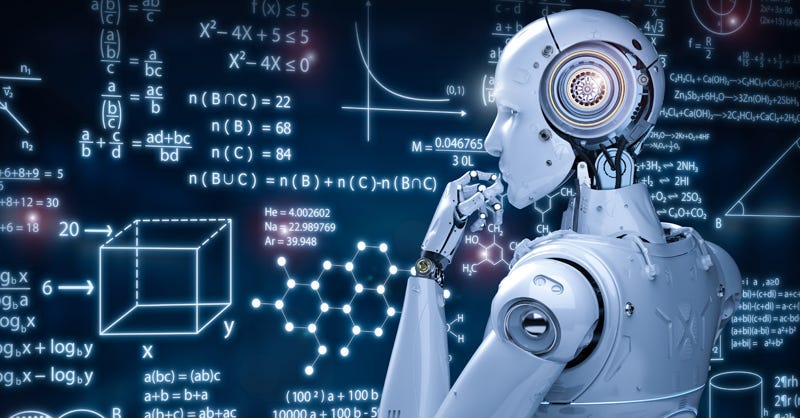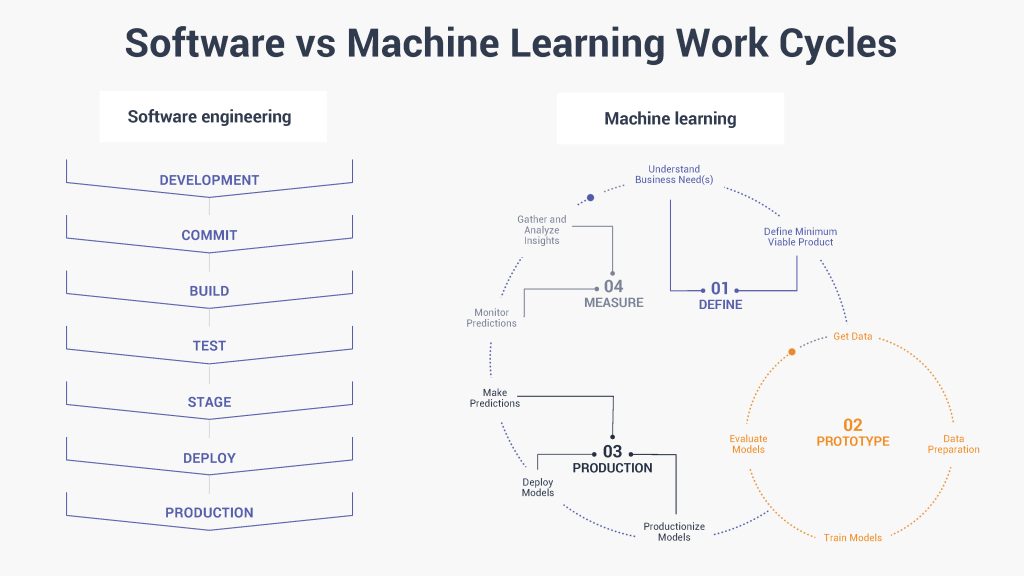All Categories
Featured
Table of Contents
My PhD was the most exhilirating and laborious time of my life. Unexpectedly I was bordered by individuals who can resolve difficult physics questions, understood quantum mechanics, and could develop intriguing experiments that got published in leading journals. I seemed like an imposter the entire time. I dropped in with a great team that urged me to discover things at my very own rate, and I spent the following 7 years learning a heap of things, the capstone of which was understanding/converting a molecular characteristics loss function (including those shateringly found out analytic by-products) from FORTRAN to C++, and writing a gradient descent routine straight out of Numerical Recipes.

I did a 3 year postdoc with little to no equipment understanding, just domain-specific biology things that I didn't discover interesting, and lastly took care of to obtain a work as a computer system researcher at a nationwide laboratory. It was a good pivot- I was a principle detective, indicating I can look for my own grants, compose papers, and so on, but didn't have to instruct classes.
Indicators on Professional Ml Engineer Certification - Learn You Should Know
However I still really did not "obtain" artificial intelligence and intended to work somewhere that did ML. I attempted to obtain a task as a SWE at google- went with the ringer of all the hard concerns, and ultimately obtained rejected at the last action (many thanks, Larry Web page) and mosted likely to benefit a biotech for a year before I lastly procured worked with at Google during the "post-IPO, Google-classic" era, around 2007.
When I reached Google I promptly checked out all the tasks doing ML and located that than advertisements, there actually had not been a lot. There was rephil, and SETI, and SmartASS, none of which appeared even remotely like the ML I was interested in (deep neural networks). So I went and focused on various other stuff- finding out the dispersed innovation beneath Borg and Colossus, and grasping the google3 stack and manufacturing environments, primarily from an SRE point of view.

All that time I would certainly invested in equipment discovering and computer system framework ... went to creating systems that loaded 80GB hash tables into memory so a mapper can compute a tiny part of some gradient for some variable. Sibyl was in fact a terrible system and I got kicked off the team for telling the leader the appropriate means to do DL was deep neural networks on high performance computer hardware, not mapreduce on cheap linux collection machines.
We had the information, the algorithms, and the calculate, at one time. And even better, you didn't need to be within google to make use of it (except the big information, and that was transforming quickly). I recognize sufficient of the mathematics, and the infra to lastly be an ML Engineer.
They are under intense pressure to obtain outcomes a few percent better than their collaborators, and afterwards as soon as published, pivot to the next-next thing. Thats when I created one of my legislations: "The greatest ML designs are distilled from postdoc tears". I saw a couple of individuals damage down and leave the market forever simply from working with super-stressful projects where they did wonderful job, but only got to parity with a competitor.
Imposter disorder drove me to conquer my charlatan syndrome, and in doing so, along the means, I learned what I was going after was not really what made me delighted. I'm far more completely satisfied puttering regarding using 5-year-old ML tech like item detectors to improve my microscope's ability to track tardigrades, than I am trying to come to be a popular scientist that uncloged the difficult troubles of biology.
Machine Learning/ai Engineer - Questions

Hello there world, I am Shadid. I have been a Software application Engineer for the last 8 years. I was interested in Equipment Knowing and AI in college, I never ever had the possibility or patience to go after that interest. Now, when the ML field expanded greatly in 2023, with the most recent technologies in big language designs, I have a horrible longing for the roadway not taken.
Scott talks about just how he finished a computer science degree simply by following MIT curriculums and self studying. I Googled around for self-taught ML Engineers.
At this factor, I am not exactly sure whether it is feasible to be a self-taught ML engineer. The only way to figure it out was to try to try it myself. Nevertheless, I am confident. I intend on taking courses from open-source programs available online, such as MIT Open Courseware and Coursera.
6 Simple Techniques For Advanced Machine Learning Course
To be clear, my objective below is not to construct the next groundbreaking version. I simply desire to see if I can get an interview for a junior-level Artificial intelligence or Data Engineering work after this experiment. This is totally an experiment and I am not trying to transition into a role in ML.

I intend on journaling about it weekly and recording everything that I research study. Another disclaimer: I am not starting from scratch. As I did my bachelor's degree in Computer Engineering, I understand a few of the principles needed to draw this off. I have solid background understanding of solitary and multivariable calculus, linear algebra, and stats, as I took these courses in school regarding a years ago.
The Single Strategy To Use For What Do Machine Learning Engineers Actually Do?
I am going to concentrate mostly on Machine Learning, Deep learning, and Transformer Design. The objective is to speed up run via these very first 3 programs and obtain a solid understanding of the essentials.
Currently that you've seen the course recommendations, below's a quick guide for your learning machine discovering trip. We'll touch on the prerequisites for many equipment learning training courses. Advanced training courses will call for the complying with understanding before beginning: Direct AlgebraProbabilityCalculusProgrammingThese are the general components of being able to recognize how equipment learning works under the hood.
The first course in this listing, Machine Discovering by Andrew Ng, contains refreshers on a lot of the math you'll need, yet it may be testing to learn artificial intelligence and Linear Algebra if you have not taken Linear Algebra prior to at the very same time. If you need to review the math called for, inspect out: I 'd recommend learning Python since most of good ML programs utilize Python.
The Main Principles Of 7-step Guide To Become A Machine Learning Engineer In ...
Additionally, one more outstanding Python source is , which has numerous totally free Python lessons in their interactive internet browser setting. After learning the prerequisite basics, you can start to actually recognize just how the algorithms function. There's a base collection of formulas in device knowing that every person need to recognize with and have experience utilizing.

The courses noted above have basically all of these with some variant. Understanding exactly how these strategies work and when to use them will certainly be vital when handling brand-new tasks. After the basics, some even more innovative techniques to find out would be: EnsemblesBoostingNeural Networks and Deep LearningThis is just a start, but these algorithms are what you see in some of the most interesting equipment learning options, and they're sensible additions to your toolbox.
Discovering equipment learning online is difficult and incredibly rewarding. It is necessary to keep in mind that just viewing video clips and taking quizzes does not suggest you're truly learning the material. You'll discover also a lot more if you have a side task you're dealing with that makes use of different information and has various other objectives than the course itself.
Google Scholar is constantly a good area to start. Go into search phrases like "device discovering" and "Twitter", or whatever else you're interested in, and hit the little "Develop Alert" web link on the entrusted to get emails. Make it a regular habit to check out those informs, scan via documents to see if their worth reading, and afterwards dedicate to comprehending what's going on.
How To Become A Machine Learning Engineer Without ... Fundamentals Explained
Device understanding is incredibly enjoyable and exciting to learn and try out, and I wish you found a program above that fits your very own trip into this interesting area. Device learning composes one component of Information Scientific research. If you're additionally interested in learning more about statistics, visualization, information evaluation, and extra be sure to take a look at the top data science courses, which is an overview that adheres to a similar layout to this set.
Table of Contents
Latest Posts
Tesla Software Engineer Interview Guide – Key Concepts & Skills
The Ultimate Software Engineering Phone Interview Guide – Key Topics
10 Proven Strategies To Ace Your Next Software Engineering Interview
More
Latest Posts
Tesla Software Engineer Interview Guide – Key Concepts & Skills
The Ultimate Software Engineering Phone Interview Guide – Key Topics
10 Proven Strategies To Ace Your Next Software Engineering Interview